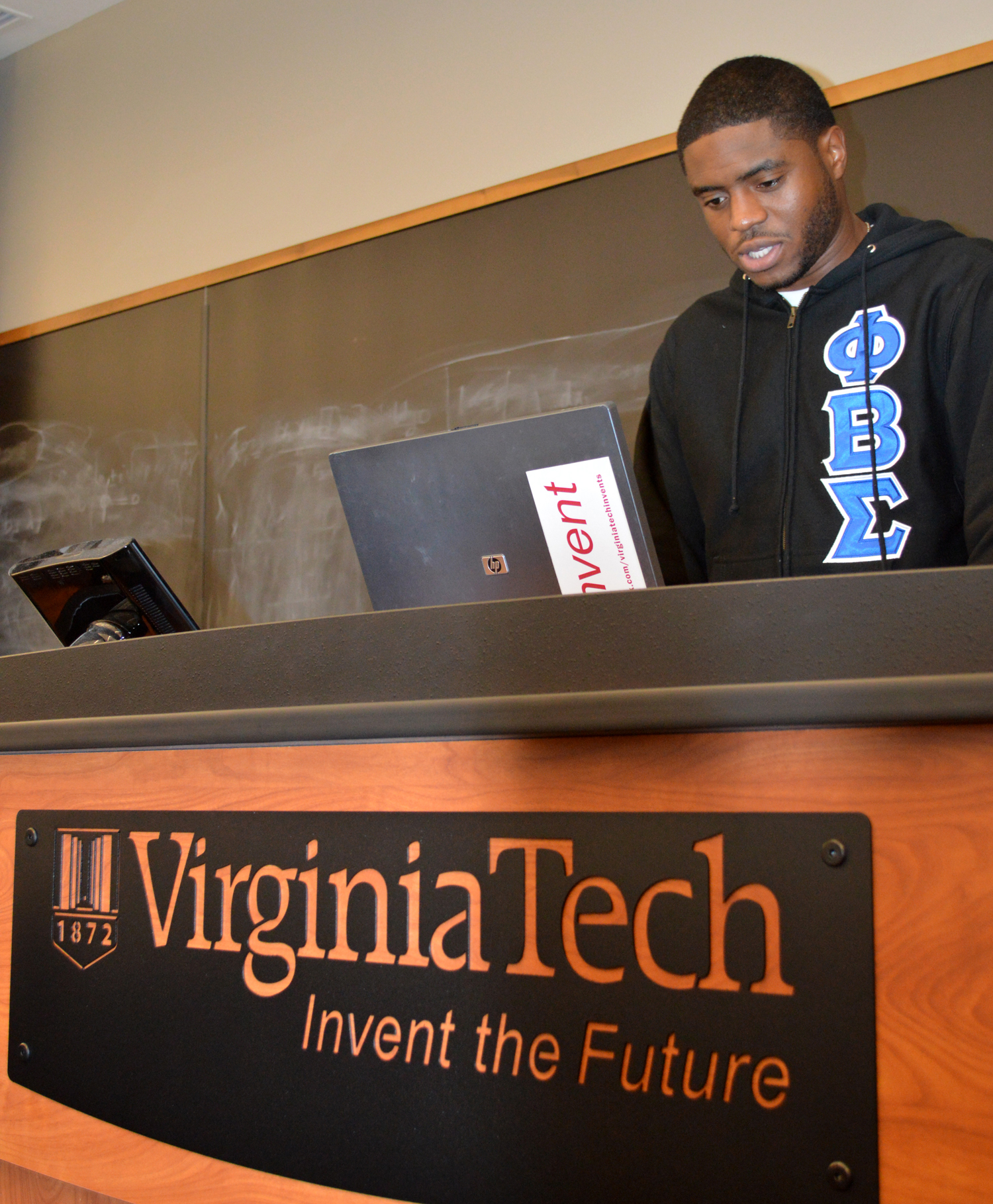College of Science class helps students think about business issues

For students in Virginia Tech's College of Science, having a litte business background can be an important asset.
Scientists often deal with patents and many are involved in start-up companies, but until recently, unless a student had a business minor, business-type classes were extremely hard to come by and fit into their already busy schedules.
That’s how Drugs, Bugs and Entrepreneurship was born.
Professor of microbiology Joe Falkinham is no stranger to the world where science and business combine. He was a co-founder of a start-up company, holds three patents, has one pending, and says he wanted to help College of Science undergrads get an idea of what the world beyond Virginia Tech is like, from a business perspective.
The program, a free elective that doesn’t count toward a core curriculum but does carry credit, gives students an idea as to what it takes to start a company; what it takes to build a team; make choices on technology, and other start-up specific information.
“We don’t use books for the course,” Falkinham explained. “We use people in the community who are entrepreneurs – people who have started companies, who have worked with the business aspects, the technical aspects, with patents. All of the things these young men and women will go through when they want to get their start-up off the ground.”
The course, in its second semester, is made up mostly of students from the College of Science and the College of Engineering, although it is open to anyone at the university.
“As it’s so new, there isn’t any history for the course,” Falkinham said, “and because of that, I consider the students we have to be quite brave.”
Vishi Chopra of Fairfax, Va., a senior majoring in bio-chemistry in the College of Science is one of the brave ones. She wants to be a dentist and figured the class would provide some good information should she open her own practice.
“It’s a very interesting course,” Chopra said, “and I’m glad it’s based on speakers and not a book. It makes you want to come to class as opposed to just reading in your room.”
The course’s mid-term assignment for students is to come up with a business concept with a description of the company, the market, and the competitive advantage their business will bring to the market. The assignment isn’t as detailed as a traditional business plan, but it keeps the students focused and makes them think about more than just their product or service.
“There are students who actually follow through and start those businesses,” Falkinham said.
One of those students is Virquan Harold of Virginia Beach, Va., a junior majoring in industrial systems engineering in the College of Engineering. Harold started a private beta version of his project, "Campus Answerz," in October. His business, he explained as part of his class presentation, will help bring campus to a micro-scale in a social network where students and faculty can interact, ask questions and solicit feedback.
“This class has definitely helped me solidify the business concept and the presentation of my company,” Harold said.
In only its second semester the response and feedback for Drugs, Bugs and Entrepreneurship has been good, but Falkinham says he would like to see students take advantage of a spring semester class offered by the Pamplin College of Business.
“The business class includes the creation of a real business plan and it’s quite a demanding course,” Falkinham said. “We advertised it last year to try to get people involved but none of our College of Science students enrolled and I was worried there wasn’t a good enough understanding of what goes on in business. So hopefully by having Drugs, Bugs, and Entrepreneurship in the fall we will encourage our students to get involved in the spring business course.”




